Afghanistan War, CIA Sponsored Terror, Civil Liberties, Criminalizing Dissent, Extraordinary Rendition, FBI Intrusion, Guantanamo, Habeas Corpus, Human Rights, Military Tribunal, Political Prisoner, RFID, Surveillance, Targeting Muslims, Torture, War Resister
Podcast: Play in new window | Download
Updates:
- Guantanamo Bay Prison 11th Anniversary
- Abu Ghraib Settlement: Defense Contractor Engility Holdings Pays $5M To Iraqi Torture Detainees
- Stop and Frisk Lawyers Praise Decision Finding NYPD Stops Unconstitutional
- Bradley Manning Case: Judge Gives 112 Days of Sentence If Convicted
- Law and Disorder Tip of the Hat: New Yorkers Respond to Hateful Subway Ads & Declare Them War Propaganda
- In Memory of Adnan Latif, A Cleared Guantanamo Detainee Who Was Found Dead In His Cell
—–
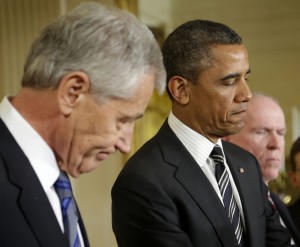

Obama to Nominate John Brennan, ‘Kill List’ Architect, as New CIA Chief
As many listeners know, President Barack Obama has nominated John Brennan as director of the CIA. Brennan is currently Deputy National Security Advisor for Homeland Security and Counterterrorism. In this capacity Brennan meets with the president daily and is governed the administration’s program of extrajudicial assassinations known as the “kill list.”
In 2011 and 2012, Brennan used his position to “re-organize” the process by which people outside of war zones were put on the list of drone targets. Basically, this “reorganization” gave the White House the power to secretly determine who would die in the US assassination program overseas.
We welcome back retired CIA officer, Ray McGovern, now a political activist. McGovern was a federal employee under seven U.S. presidents in the past 27 years. Ray McGovern’s article on Consortium News: The Grilling That Brennan Deserves.
Ray McGovern:
- After 9-11, the acceptance of things like torture has become even more widespread.
- I spent a little time in Germany and I know about Gestapo tactics, and it seem to me that enhanced interrogation techniques sounded very familiar, and indeed its right out of the Gestapo lexicon.
- The immediate post World War II experience was very vivid.
- Obama is very fastidious in looking over this “kill list.” He’s got his own priest.
- It did me great good to know there were a handful at least of Fordham students that stood with their back to Brennan and protested vigorously against not being the commencement speaker but awarded the Doctorate of Humane Letters.
- He openly advocated kidnapping, the euphemism there is extraordinary rendition.
- There are black prisons all over Europe and Asia where these people were kept and tortured.
- He was an open advocate of at least the kidnapping and he was there. He was at the right hand of George Tenet so to speak.
- I have good information that Brennan was among those in the White House basement supervising the demonstration of “enhanced interrogation techniques” that Condeleeza Rice arranged for all the personages there.
- It’s all a master weaving, webbing of deceit and John Brennan is at the bottom of it.
- He was a classis example of a failed analyst. Why did he get where he is?
- He made an important friend George Tenet.
- Is Brennan suggesting that Muslims are hard wired to want to knock down planes over Detroit.
- I have very good information in that report that Brennan is the prime mover in all these abuses.
- It’s not about success, it’s about principle here.
- I like Dr. King’s motto, there is such a thing is too late. Sometimes you really have to put your body into it.
- Unless we act, nothing will be achieved.
- There are 2 CIAs. The one that Truman set up to give him honest answers to what’s going on in the world.
- To speak without fear or favor, to tell ’em the truth. That’s the one I worked in. That’s the one I could with career protection knock noses out of joint in the Pentagon and the State Department. I could do that.
Guest – Raymond L. McGovern, retired CIA officer turned political activist. McGovern was a Federal employee under seven U.S. presidents in the past 27 years. Ray’s opinion pieces have appeared in many leading newspapers here and abroad. His website writings are posted first on consortiumnews.com, and are usually carried on other websites as well. He has debated at the Oxford Forum and appeared on Charlie Rose, The Newshour, CNN, and numerous other TV & radio programs and documentaries. Ray has lectured to a wide variety of audiences here and abroad. Ray studied theology and philosophy (as well as his major, Russian) at Fordham University, from which he holds two degrees. He also holds a Certificate in Theological Studies from Georgetown University.
A Catholic, Mr. McGovern has been worshipping for over a decade with the ecumenical Church of the Saviour and teaching at its Servant Leadership School. He was co-director of the school from 1998 to 2004. Ray came from his native New York to Washington in the early Sixties as an Army infantry/intelligence officer and then served as a CIA analyst from the administration of John F. Kennedy to that of George H. W. Bush. Ray’s duties included chairing National Intelligence Estimates and preparing the President’s Daily Brief, which he briefed one-on-one to President Ronald Reagan’s most senior national security advisers from 1981 to 1985.
—————————————————————————–
CIA Sponsored Terror, Civil Liberties, Criminalizing Dissent, FBI Intrusion, Green Scare, Habeas Corpus, Human Rights, Political Prisoner, Prison Industry, Supreme Court, Targeting Muslims, Truth to Power
Podcast: Play in new window | Download
Updates:
- Chile: 40 Years Later Eight Former Army Lieutenants Charged in the Killing of Communist Performer/Songwriter Victor Jara.
- Heidi Boghosian and Johanna Fernandez Visit Mumia Abu-Jamal During Holidays
- Death Penalty States In The United States Update
- Jeremy Hammond’s Judge Refuses To Recuse Herself : Contrary to what has been reported on Democracy Now and Law and Disorder, a motion has been filed (not ruled) for the judge to recuse herself.
——-
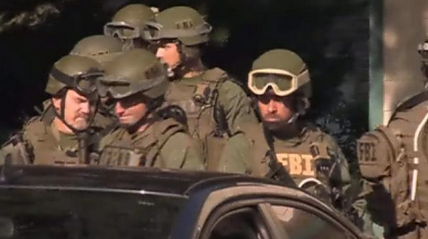

FBI Considers The Occupy Movement A Terrorist Threat: The State of Civil Rights and Public Policy
A few weeks ago the Partnership for Civil Justice Fund released secret documents obtained by Freedom of Information Act requests revealing that the Occupy movement was treated as a terrorist threat by the FBI. This is despite agency acknowledgement that the organizers called for peaceful protests. The documents also show massive resources used to track the Occupy movement, a month prior to the encampment in Zuccotti Park. FBI and counter-terrorism agents in offices across the country, from Anchorage to Jacksonville, to Tampa, Virginia, Milwaukee, Birmingham, Memphis and Denver, coordinated with various local and federal law enforcement, to monitor and collect intelligence on OWS. The documents obtained by the PCJF are heavily redacted and the tip of the ice berg says our guest attorney Mara Verheyden Hilliard. We also talk with Mara about her thoughts on the state of civil rights for the year moving forward.
Attorney Mara Verheyden-Hilliard:
- The Partnership For Civil Justice Fund filed a series of Freedom of Information Act requests with federal agencies, as well as with municipalities and police departments around the country.
- Prior to the FBI materials we have obtained a lot of documents showing the Department of Homeland Security’s involvement as well as local police involvement around the country.
- It doesn’t come as a shock to people that the FBI has continued unabated its historic role as the secret police in the United States, acting against the social justice movement in the US.
- The documents also show us this deep and close partnership the FBI and DHS have with Wall Street, and with the banks and businesses in the United States.
- The documents show the U.S. intelligence agencies and supposedly security agencies really working as the private intelligence arm for private businesses.
- You have the people in the United States rising up in opposition to an economic devastation caused by the banks and by Wall Street and the U.S. government acting in partnership with the banks and Wall Street against those people.
- These documents show for example the FBI was communicating with the New York Stock Exchange in August of 2011, a month before the first tent was set up in Zucotti Park.
- One of the documents we have involves the Domestic Security Alliance Council, where they’re planning on the West Coast port actions of the Occupy movement.
- The DSAC is a government agency that describes itself as a partnership between the FBI, DHS and the private sector. The Lower Manhattan Security Initiative.
- It shows that we’re not looking at something anomalous and aberrational, its pulling back the cloak on what the U.S. government, its intelligence agencies and its “terrorism” authorities is really doing and who its partnering with. It’s against the people of the United States and not for the people of the United States.
- Those people and that movement is then treated by the government as a potential criminal or terrorist threat.
- It helps understand when the government uses the terms of terrorism so broadly and how it uses the authority and the money that it takes from the people of the United States.
- If the FBI had materials that showed criminal activity, they would’ve been delighted to produce some and make those public. That’s not an uncommon action by the FBI given its routine willingness over the years to set people up and announce a big terrorism arrest.
- The sniper reference is a reference in Houston.
- I think it bares pointing out that this FBI, is President Obama’s FBI.
- When the feel the power of the people in the streets, the U.S. intelligence agencies and the local law enforcement agencies go into high gear, because it really is the movement of the people that does cause change.
- At times when it peaks like this, you can really see the truth of their operation.
- It is illegal to use administrative raids for other pretexts.
- We’re appealing both redactions as well as scope of production and scope of search.
Guest – Mara Verheyden-Hilliard, co-chair of the Guild’s national Mass Defense Committee. Co-founder of the Partnership for Civil Justice Fund in Washington, DC, she recently secured $13.7 million for about 700 of the 2000 IMF/World Bank protesters in Becker, et al. v. District of Columbia, et al., while also winning pledges from the District to improve police training about First Amendment issues. She won $8.25 million for approximately 400 class members in Barham, et al. v. Ramsey, et al. (alleging false arrest at the 2002 IMF/World Bank protests). She served as lead counsel in Mills, et al v. District of Columbia (obtaining a ruling that D.C.’s seizure and interrogation police checkpoint program was unconstitutional); in Bolger, et al. v. District of Columbia (involving targeting of political activists and false arrest by law enforcement based on political affiliation); and in National Council of Arab Americans, et al. v. City of New York, et al. (successfully challenging the city’s efforts to discriminatorily restrict mass assembly in Central Park’s Great Lawn stemming from the 2004 RNC protests.)
———
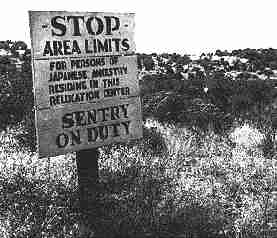
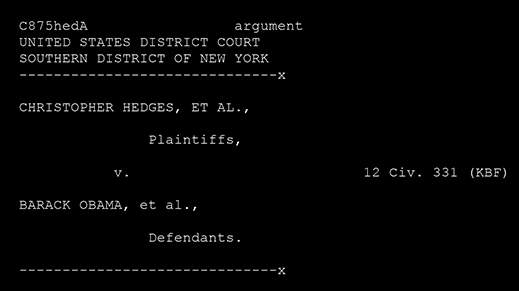
Challenging The National Defense Authorization Act of 2012
Last September a federal judge struck down part of the National Defense Authorization Act signed by President Obama that gave the government power to indefinitely detain anyone, anywhere in the world it considers to substantially support or be in associative force with terrorism. This includes US citizens. Judge Katherine Forrest of the Southern District of New York had ruled the indefinite detention provision of the National Defense Authorization Act likely violates the First and Fifth Amendments of U.S. citizens.
Attorney Carl Mayer:
- Some people call it (NDAA) the Homeland Battlefield Act because it treats the United States as a battlefield and allows the military to exercise power over civilians which is antithetical to our democracy and to our 200 years of Constitutional precedence.
- In May of 2012, we after a trial before Katherine Forrest who’s a federal judge in the Southern District of New York we achieved a preliminary injunction. That was then appealed but the appeal would stay pending a trial on a permanent injunction and on September 12, 2012, Judge Forrest issued a permanent injunction against the NDAA.
- The NDAA was stopped between May 16, 2012 and December 12, 2012.
- However, once that happened, the Obama Administration went into overdrive and immediately appealed that to the Second Circuit and asked for a stay of Judge Forrest’s order pending appeal.
- That stay lifted Judge Forrest’s injunction unfortunately the NDAA of 2012 now operates.
- In their papers, the government promised our clients would not be touched under the NDAA and they seemed to imply that no one in their (clients) position would be touched under the NDAA.
- StopNDAA.org
- People can go there and read Judge Forrester’s 112 page opinion and all the documents from the case.
- What’s at stake is the liberty and the right to free speech of all journalists and all activists and indeed any citizen of the United States of America.
- Because the military has never had the power to detain civilians.
- The only exception to that was during World War 2 when Japanese-Americans were interred in prison camps.
- There’s not right to a trial by jury, there’s no right to an attorney. This an authoritarian measure.
- I would venture to guess your hosts and co-hosts are on a list somewhere.
- Chris Hedges for example was a correspondent for several years that covered not only al-Qaeda but 17 other groups that are one the State Department Terrorism List
- He testified that he had a reasonable fear that the NDAA could put him in jeopardy.
- You know as attorneys what’s incredible about this law is there’s no definitional section.
- It doesn’t define what associated forces are. It doesn’t define what substantially supportive means.
- Chris Hedges was detained by the military for leaving the press pool in Iraq.
- Now the NDAA allows these detentions “until the end of hostilities.”
- It really is a heinous statute.
- We lost the stay but we got an expedited appeal.
- The briefing is complete and we’re waiting for an oral argument date.
- The government has two moves, they say whoever brings the suit has no standing, then if it gets past that point they say, sorry the state’s secrets doesn’t allow you to have discovery here.
- Attorney General Holder stated that Americans are entitled to due process but that doesn’t necessarily means judicial process.
- It takes the view that “during war time” that the judiciary has no role to play.
- The NDAA is the culmination of 10 years of anti-civil liberties measures.
Guest – Attorney Carl Mayer runs the Mayer Law Group LLC and is the author of several books including “Shakedown” and “Public Domain, Private Dominion.” Carl Mayer is a former law professor and served as special counsel to the New York State Attorney General.
——————————————————————————
CIA Sponsored Terror, Civil Liberties, Criminalizing Dissent, FBI Intrusion, Green Scare, Habeas Corpus, Human Rights, Political Prisoner, RFID, Supreme Court, Surveillance, Targeting Muslims, Torture, Truth to Power, War Resister
Podcast: Play in new window | Download
Updates:
- Khaled El-Masri and the European Court of Human Rights Decision
- European Court of Human Rights Labels CIA Interrogation Procedures as “Torture”
—–
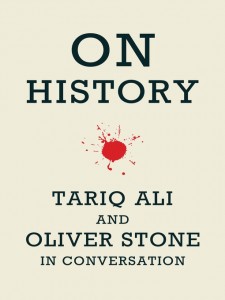
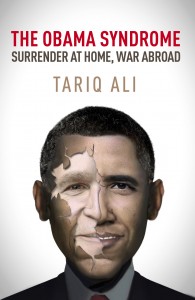
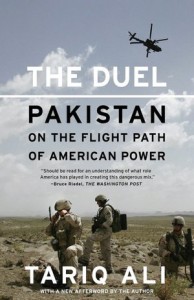
Tariq Ali: Turning Points in the History of Imperialism
Today we’re joined by internationally renowned writer and activist Tariq Ali. Tariq is visiting from London where he is editor of the New Left Review.
A writer and filmmaker, Tariq has written more than 2 dozen books on world history and politics, including The Duel: Pakistan on the Flight Path of American Power, The Obama Syndrome and On History. We talk specifically about several turning points in global history, the Occupy movement and US elections. .
Tariq Ali:
- The think the first World War was crucial but it wasn’t the war itself it was the consequences of that war. Here you had huge empires.
- The Russian revolution challenged capitalism frontally and its leaders said we want Europe to be with us, on our own we can’t do it. We need the Germans, we need a German revolution. That frightened the capitalist class globally.
- Woodrow Wilson, decided that the time had come to intervene. 22 countries came to intervene.
- This intervention made it impossible for the early infant Soviet Union to achieve what it wanted to achieve.
- The Second World War was an effort by the German ruling class to get its share of the world market in countries.
- The US helped rebuild Japan and Germany. They helped build France and Britain by the Marshal Plan and that has never been done by a big imperial power before.
- They managed to get the Soviet Union to implode by having an arms race. The Russians fell into their trap and decided to go for the arms race, had they not history might have been different.
- I hope the Chinese do not fall into the same trap, threatened by Obama’s puny little bases in Australia.
- People, early settlers in the United States got land totally free and they took it and that created the belief in the American psyche of private property.
- The Soviet Union imploded because the people lost faith in the system.
- The entire elite in the United States and Western Europe is wedded to the Washington consensus that emerged after the collapse of communism. The center piece of this consensus was a system which believed in market forces. I refer to it as market fundamentalism.
- We are confronting the extremism of the center and the result of this is no alternatives exist within mainstream politics. The effect that this is having is hollowing out democracy itself.
- Occupy: What we need is for these movements to call an assembly nationally and discuss a charter of demands for progressive America which need only be ten demands but something around which people can rally. I think its a movement that should be created bearing what the needs of ordinary people are.
- In order to understand the laws of motion of capital, you have to read Marx. It’s true capitalism has become much much more complex. Zombie capitalism, or fictitious capitalism, where money is used to make more money.
- It’s not money that’s creating productive goods.
- I had written a book on South American because I got very engaged in the Venezuela-Boliverian struggle and got to know Chavez very well.
- If Americans had access to Cuban medicine, the pharmaceutical companies would collapse, they would never let it happen.
Guest – Tariq Ali, writer, journalist and film-maker, born in Lahore and educated at Oxford University. He writes regularly for a range of publications including The Guardian and The London Review of Books. He has written more than a dozen books including non-fiction as well as scripts for both stage and screen.
—–
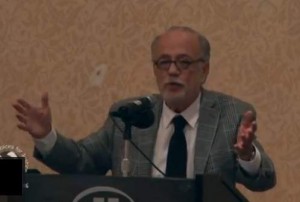
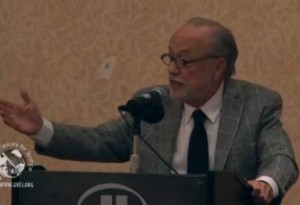
National Lawyers Guild 75 Years
Hundreds of National Lawyers Guild members and allies gathered to celebrate the organization’s 75th anniversary at the Law for the People convention in Pasadena, California. We hear excerpts from speeches from the National Lawyers Guild Convention by Attorney Jim Lafferty The 2012 Law for the People Award was given to Jim Lafferty.
Scholar and activist Angela Davis delivered the keynote address and among the convention honorees will be Margaret Burnham, a professor of civil rights law who, as a young lawyer, helped secure Davis’s 1972 acquittal on high-profile charges.
Founded in 1937, the National Lawyers Guild is the oldest and largest public interest/human rights bar association in the United States. Its headquarters are in New York City and it has members in every state.
Jim Lafferty, Executive director of the National Lawyers Guild in Los Angeles and host of The Lawyers Guild Show on Pacifica’s KPFK 90. 7 FM.
——————————————————————-
Afghanistan War, CIA Sponsored Terror, Civil Liberties, Criminalizing Dissent, Extraordinary Rendition, FBI Intrusion, Habeas Corpus, Human Rights, Iraq War, Military Tribunal, Political Prisoner, Prison Industry, RFID, Surveillance, Targeting Muslims, Torture, Truth to Power, War Resister
Podcast: Play in new window | Download
Updates:
——

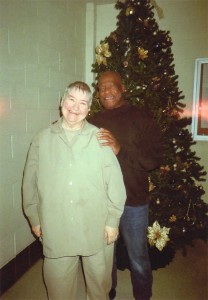
Political Prisoner Lynne Stewart – December 2012 Update
Criminal defense attorney, political prisoner and good friend, Lynne Stewart continues to inspire people around her while serving a 10 year sentence at the Federal Medical Center in Fort Worth Texas. As many listeners know, Lynne was convicted on charges related to materially aiding terrorism, related to her representation of Omar Abdel Rahman. Her original 2 year sentence was increased to 10 years after the government pressured the trial judge to reconsider his sentencing decision.
Co-host Michael Smith reads a few paragraphs from a recent letter by Lynne. Lynne Stewart turned 73 this past October, she’s a breast cancer survivor and has recently come out of surgery. She says she’s feeling better and ready to take on the next step in her case.
“I am now beginning my fourth (4th) year of imprisonment. It does not get better and I have to gut check myself regularly to be certain that I am resisting the pervasive institutionalization that takes place. A certain degree of reclusiveness with the help of good books, interesting people to correspond with, writing on topics of public interest, seems to work for me. Of course I still am working with any woman who needs help but I know that my sometimes truth-telling self is not what folks here want to hear. I do try to give folks whatever comfort I can. An old timer here, 18 years in, has begun an initiative to mobilize for prison reform by getting people on the outside to sign off on her well written petition to the White House. She is straight out of the courage and style of the old southern civil rights struggle but has now dedicated herself to this. The demands are modest. I have placed her petition on this, my website. Please sign on.”
Guest – Ralph Poynter, activist and Lynne’s partner. Please write to Lynne Stewart: #53504-054 / Federal Medical Center, Carswell / PO Box 27137 / Ft. Worth, TX 76127
——
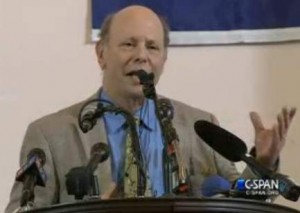
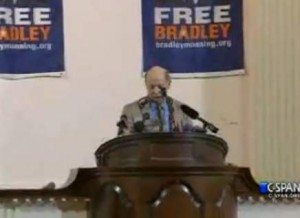
Michael Ratner Speech On Bradley Manning in Washington DC.
We hear a speech by our own Michael Ratner delivered at the Bradley Manning support event. Michael Ratner, President Emeritus of the Center for Constitutional Rights, who represents WikiLeaks and Julian Assange. Attorney David Coombs also speaks about the case of his client, Bradley Manning. He is preceded by Emma Cape of the Bradley Manning Support Network. The event was held at All Souls Church Unitarian in Washington DC, December 2012.
—————————————————–
Civil Liberties, Criminalizing Dissent, FBI Intrusion, Green Scare, Human Rights, Truth to Power
Podcast: Play in new window | Download
Updates:
- Judge Shira Scheindlin of Federal District Court in Manhattan To Rule In Stop and Frisk Case
- NYPD Subpoena Phone Records of Stolen Phones – Amassing Database
- Julian Assange Book – Cypherpunks
- Bradley Manning Hearing Update
- Husband of Jeremy Hammond’s Judge Victim Of Stratfor Email Hack
——–


Who Bombed Judi Bari?
Who Bombed Judi Bari? is a recently released documentary film about the car bombing of labor and environmental organizer Judi Bari. Judi Bari was a natural leader that rallied thousands of activists to camp out and protest the clearcutting of red wood forests during the timber wars in 1990’s. Though Judi was crippled and in chronic pain from the car bomb, she went on to sue the authorities for civil rights violations winning a settlement but eventually died from cancer seven years after the bombing.
Darryl Cherney:
- Judi Bari was a union organizer and an Earth First organizer, she was the mother of two children, a professional carpenter, here in the Redwood region of California.
- That in a way is what made her so dangerous to the status quo because that what we know so well, a world divided and conquered by those that would rather us fight each other than those at the top.
- Judi Bari was a unifier, she was somebody who brought loggers, timber workers, mill workers, truck drivers together with environmentalists to find our common goals, and to focus attention on the corporate elites who are manipulating all of us.
- The issues are the same today as they’ve been for the last 6000 years of recorded history.
- Human beings have been logging the forests since the cedars of Lebanon. Judi was taking on the issue of mowing down ancient Redwood trees that stand 350 feet tall, 15 feet wide, 2000 years in age.
- A single Redwood can hold 4000 gallons of water. They’re worth 50 thousand dollars a piece.
- Redwood Summer did emulate Freedom Summers sometimes called Mississippi Summers in the deep South.
- The point was the same as long as things happened in the deep South without anybody looking, they could continue, Jim Crow would continue.
- The mowing down of our eco-system which we believe is a civil rights movement as much as a environmental movement because our ability to live on this planet depends on our ecosystem staying intact.
- We invited college kids as well as anyone who wanted to participate and that’s what Redwood Summer was.
- We received about 3 dozen death threats mostly by letter, by phone and some in person over a short period of time, about a month and a half, right after we announced Redwood Summer.
- We decided to get out of rural areas, so we were touring universities, as we were leaving Oakland, where Judi had spent the night heading toward Santa Cruz. Judi ordered me into her car, we drove for a couple of minutes a bomb exploded under her seat.
- Fracturing her pelvis, causing intestinal damage, pulverizing her lower vertebrae.
- Instantly within 5 minutes the FBI and Oakland Police showed up.
- They knew the bomb was a booby trap, designed to only go off in a moving car.
- They looked at the death threats and immediately dismissed them as irrelevant.
- Violence is a dominant gene. You can have a thousand peaceful people but one violent person can ruin for everybody else.
- The FBI and the Oakland Police were eventually found liable for violating the First Amendment of the US Constitution. It wasn’t that they were mistaken, they knew we were innocent.
- They found the motion trigger that said the bomb could only go off in a moving vehicle.
- Right to her death, the FBI and the Oakland never asked Judi one question.
- Judi Bari was a full-time working carpenter. She supervised a construction crew.
- WhoBombedJudiBari.com
Guest – Darryl Cherney, born in New York City where he was a child actor. For 20 years he has been an activist, topical singer -songwriter and organizer in Humboldt County California. He helped spearhead the successful campaign to protect the redwoods, including Headwaters Forests, now a national preserve. As creator and president of Environmentally Sound Promotions, the non-profit organization, he has produced five albums of his original songs dedicated to environmental protection. He also produced Judi Bari?s spoken word CD, Who Bombed Judi Bari?, and the benefit compilation, If a Tree Falls.
—

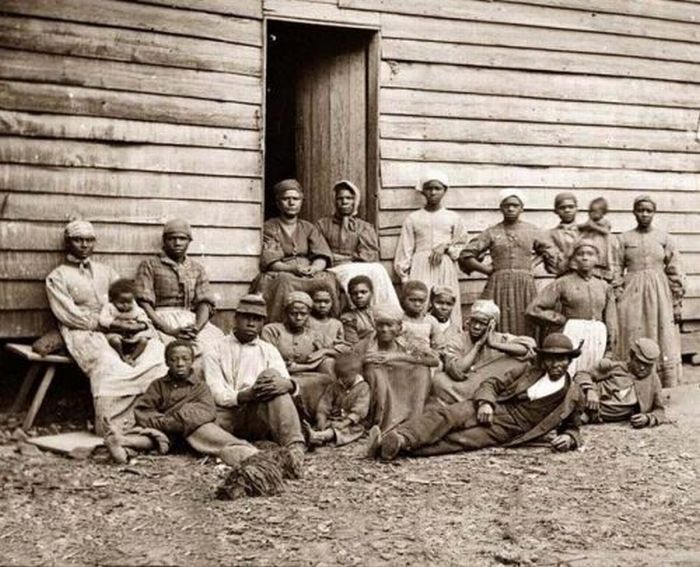
Lincoln 2012: Analysis
As many listeners may know the recent film titled Lincoln hit theaters this fall. The film recounts how President Abraham Lincoln’s efforts to pass an amendment to the United States Constitution that would formally abolish slavery in the country. In January of 1865, Lincoln was expecting the Civil War to end within a month but concerned that his 1863 Emancipation Proclamation may be discarded by the courts once the war ends and the 13th Amendment defeated by the returning slave states. In the film, we see Abraham Lincoln working to pass the amendment by the end of January.
Professor Bruce Levine:
- Its a civil war movie that unlike so many others properly places slavery and the Republican Party’s determination to see slavery die at the center of the story.
- I think the movie is deficient in a number of ways. The prior course of the war. The growth of anti-slavery sentiment in the Union.
- It wasn’t Lincoln who came up with the idea of the 13th Amendment.
- Compromise and political manipulation was not at the heart of the success of Lincoln’s presidency.
- What we should be recognizing as Lincoln’s greatness is not is ability to bend, but his refusal to do that at most of the important points on which he was challenged.
- By the end of the civil war closer to 200 thousand black men served either as Union soldiers or sailors.
- This is somebody who grew during his presidency. He grew intellectually, and he grew politically and morally.
- Fall of the House of Dixie attempts to tell the story of the American Civil War as a social and political revolution.
- As slavery began to break down during the course of the US Civil War.
Guest – Professor Bruce Levine, is the James G. Randall Professor of History at the University of Illinois, Urbana-Champaign. A noted scholar of the Civil War, he is author of Half Slave and Half Free: The Roots of Civil War (2nd ed., 2005), Confederate Emancipation: Southern Plans to Free and Arm Slaves during the Civil War (2005), and The Fall of the House of Dixie: The Destruction of Slavery and the Old South during the Civil War (2013). Levine will deliver a lecture on recent trends in Civil War scholarship.
—————————————————————
Afghanistan War, CIA Sponsored Terror, Civil Liberties, Criminalizing Dissent, Extraordinary Rendition, FBI Intrusion, Guantanamo, Habeas Corpus, Human Rights, Political Prisoner, Prison Industry, Prosecution of the Bush Administration, Supreme Court, Targeting Muslims, Torture
Podcast: Play in new window | Download
Updates:
——
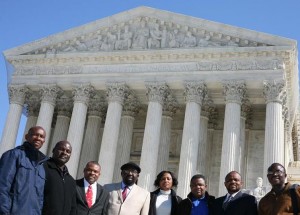
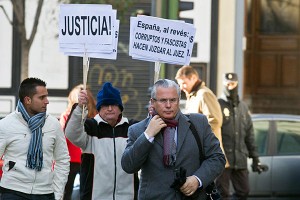
Universal Jurisdiction: Kiobel v. Royal Dutch Shell / Bush 6 Case In Spain
This week the US Supreme Court will decide if corporations could be held liable in U.S. courts for violations of international human rights law in the land mark case Kiobel v. Royal Dutch Petroleum. The case was brought by families of seven Nigerians who were executed by a former military government for protesting Shell’s exploration and development and is pushing to hold corporations accountable for human rights violations. The Supreme Court will also consider how the Alien Tort Statute Claim can be used the Kiobel case. A one sentence law that goes back to 1789 when the first judiciary act was brought in the United States. We’ve discussed this statute with several past guests including attorneys Peter Weiss and Rhonda Copeland who were instrumental in beginning the first cases in which human rights violations, taking place in other countries could actually be litigated in the United States.
We also discuss the recent amicus filing by a group of international human rights organizations and experts before the Spanish Supreme Court. The brief asks the Spanish Supreme Court to overturn a decision not to pursue a criminal case against six former officials from the Bush administration for their role in directing and implementing a systematic torture program. Past shows with Katherine Gallagher.
Attorney Katherine Gallagher:
- The Kiobel case has been in US courts since 2004.
- The claims were brought in the Southern District of New York, under a law from 1789, known as the Alien Tort Statute.
- This law allows non-US citizens to come into a US federal court and assert violations of the Laws of Nations or International Law.
- A recent precedence for this is Citizens United, what happened was that the Second Circuit ruled that corporations could not be held liable for these egregious human rights violations under the Alien Tort Statute.
- The question of corporate liability went up to the Supreme Court first.
- We had 2 judges from a 3 bunch panel in the Second Circuit suddenly come out in the fall of 2009 and say there is no corporate liability. That is the question that went up to the Supreme Court.
- Four other circuits had look at this question and they said of course corporations can be held as liable as an individual, a natural person.
- The Alien Tort Statute allows for a civil suit and civil liability rather than criminal liability.
- The key case from 1980 that CCR brought, the case of Filartiga, this case which the Supreme Court affirmed in 2004 as being on solid legal basis, claims by a Paraguayan, against a Paraguayan for actions that occurred in Paraguay.
- So its very strange that the Supreme Court was asking in a very broad fashion whether the ATS could apply to actions that occurred in another country. That is what the bulk of the cases brought under the ATS have been about.
- Some of the cases where the ATS is used are for some of the most serious violations. Cases of war crimes, crimes against humanity, torture, not your run of the mill case.
- What the justices seem to coalesce around was the issue of whether there’s an alternate forum. If the claims against Shell could have been brought in the UK or in the Netherlands, maybe they don’t need to be brought in the US.
- We’ve seen a trend in the last 20 years of other countries adopting stronger laws that allow for redress, and accountability, so we don’t have to be the world’s policeman.
- There have been 2 cases that percolated up in the last 4 years in Spain.
- The first is a widespread investigation of the torture program then Judge Balthazar Garzon. This is a case looking at torture in Guantanamo, and potentially in Iraq and Afghanistan, looking at the whole U.S. torture program. That case was brought on by 4 named plaintiffs.
- That case is very wide ranging, and willing to go up the chain of command as far as the evidence leads.
- There is a second case that was brought against specific U.S. individuals. They’re known as the Bush 6, including, Jay Bybee, John Yu, David Addington, Alberto Gonzalez. Six men who served as lawyers and argued to have essentially created both the legal structure that enabled the torture program, providing arguements for immunity and protecting participants of the torture program from accountability.
- Spain has a long and proud history of upholding International Law. Spain is where we had the case against Augusto Pinochet in the late 90s.
- We’ll be doing this as long as we need. We need to have accountability, its really critical.
Guest – Katherine Gallagher, Senior Staff Attorney at the Center for Constitutional Rights (CCR), where she focuses on holding individuals, including US and foreign government officials, and corporations, including private military contractors, accountable for serious human rights violations. Among the cases she has worked, or is working, on are international accountability efforts for U.S. officials involved in torture (Spain, Switzerland, Canada); ICC Vatican Officials Prosecution; Arar v. Ashcroft, Corrie v. Caterpillar, Matar v. Dichter, Saleh v. Titan, Al-Quraishi v. Nakhla and L-3, Estate of Atban v. Blackwater.
—————————————————————————————————




















